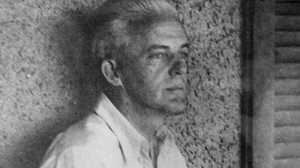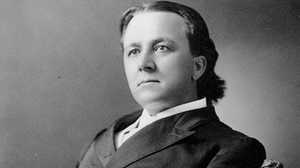Delta Blues Music
As the flood waters rose, many blues artists were inspired to write songs about the disaster and describe the experience of being in a flood.
The Mississippi Delta is famous for more than floods; it's the birthplace of uniquely American music. As the flood waters rose, many blues artists were inspired to write songs about the disaster and describe the experience of being in a flood.
Mai Cramer, who has hosted her "Blues After Hours" radio show for over two decades, and Prof. David Evans, an ethnomusicologist at the University of Memphis, explain some of the history behind blues music, especially the stripped-down, raw style of music called Delta blues.
Mai Cramer
Mai Cramer, who has hosted her "Blues After Hours" radio show for over two decades, and Prof. David Evans, an ethnomusicologist at the University of Memphis, explain some of the history behind blues music, especially the stripped-down, raw style of music called Delta blues.

Blues is very visceral. For the most part it's narrative. It tells a story out of people's lives. Compared to other types of music, it's very authentic -- there aren't a lot of frills. What we usually think of as Delta blues is one person with a guitar, typically a slide guitar, and that real raw kind of singing. Delta blues grew up into modern Chicago blues. If you listen to Muddy Waters, for example, he's basically singing Delta blues that are citified and electrified. Delta blues is the foundation for that.
When we listen to blues music of the 1920s, it's like looking through a window at the experience people are having at the time. Typically, blues artists write out of their own experience. A lot of blues is about men and women, and relationships. Blues was sung at rent parties, where you'd play music and pass the hat to pay your rent. Or they'd be in shacks behind the fields, "juke joints" where people would drink, dance, and hear music. It's the music you'd play when you were relaxing or partying. Initially it was black music played by black people for black people. Only a few early performers, like Bessie Smith, who sold a lot of records, sold to white people. The blues were mostly only in the black community until large numbers of whites discovered the music in the 1950s and especially in the 1960s.
We always think of blues as being intense, as having an emotional intensity. Floods are natural disasters that overwhelm you the way emotions can overwhelm you, and so the flood is an important image for the blues, a metaphor for an experience that's too much, that's just impossible to handle.
Two artists who are still alive today have connections to the very earliest Delta blues. They're in their 80s. These two artists are not the only ones who play Delta blues, but they're among the last who were there when it started. Robert Junior Lockwood was up for a Grammy this year with traditional Delta blues, and he's a link to the Delta because his mother had a relationship with Robert Johnson, who was known as the King of the Delta Blues. Robert Junior learned from Robert Johnson. David "Honey Boy" Edwards is also still alive, and he's another important musician. He lived the life of an itinerant blues singer and wrote about it in his autobiography, The World Don't Owe Me Nothing. A lot of Delta blues appears on the Yazoo label.
David Evans

Most blues songs are about personal experiences and personal feelings and they tend to concentrate on themes of man-woman relationships and the related emotions -- the whole range of emotions, happy and sad. Travel is another theme. Movement. Work and other social conditions. Social problems. Luck. Magic. More or less, the ups and downs of daily life. There are some that deal with themes of broader interest: current events, political events, commentary, and so on. These are still often tied to personal reactions and personal feelings. The flood was both a public event, a news story, and something that hundreds of thousands of African Americans experienced directly.
The Delta itself has throughout blues history been a stronghold of blues music. It was very intensely developed there, stylistically and creatively. It has been central to African American cultural life in the Delta, particularly in the first half of the 20th century. It's characterized stylistically by a very intense type of performance, a minimalist style that squeezes the maximum feeling and emotion out of each note. The perfomers typically sing and play very hard, and often explore very deep themes philosophically. In other words, it tends not to be superficial music, but a very deep expression of a personal, and a collective, feeling.
The music started around the beginning of the 20th century and it seems to have reached a creative peak in the 1920s that's captured in phonograph records of that era, starting in the year 1920. A number of Mississippi Delta artists recorded in that decade. This was really a golden age, particularly of the country blues. The first flowering of country blues on records happened in 1926.
It seems there were 25 or 30 records by blues artists on or related to the 1927 flood. The songs present a variety of commentary on the flood. The ones by the few artists that were from the area, who might have actually experienced the flood (like Charlie Patton or Alice Pearson) tend to be the most realistic in their descriptions, the most accurate in their details. Some of the others are inaccurate, based on hearsay, some sentimentalize the flood, some even trivialize it, or find some way to connect it to the man-woman theme, or sexual double entendre, getting back to more standard blues themes. A song by Atlanta artist Barbecue Bob, "Mississippi Heavy Water Blues," describes losing his woman, who's washed away in the flood. They range over quite a bit of emotional territory.
Blind Lemon Jefferson, from Texas, recorded a flood song, and frequently performed in the Delta, in small theaters in towns like Greenwood and Greenville. Sometimes he would just come into town and set up in a park, and draw a crowd. Lonnie Johnson, who was based in St. Louis, recorded a flood song also. There were artists in other styles, too, the vaudeville blues singers, who also recorded flood songs. Bessie Smith had probably the most famous song on the flood, but there's a peculiarity to it. It was recorded before the flood. "Back Water Blues" was recorded in February 1927, before the great disaster of April. Perhaps the buildup of rain made her anticipate the flood; it was released just as the flood came, and as a result, it became a big hit. It's a description of one woman's experience of a flood. There had been a lot of rain for weeks prior to the flood so she might have in some way anticipated the flood, or it might have been a coincidence.
There had been generic flood songs in the 1920s. There was a piece called "Muddy Water" which was a pop song of 1926. Bessie Smith also recorded this song. There were certainly enough floods in all parts of the lowland South so that flood themes would be taken up often. On the religious side, in gospel music, there were some recordings that saw greater significance in this flood. One in particular, "The1927 Flood," by Elders McIntorsh and Edwards (recorded in December 1928), saw the hand of God in the flood, as a punishment for wickedness. A black preacher in Memphis, the Reverend Sutton E. Griggs, saw the flood as a metaphor of black-white cooperation, the people trying to shore up the levees, something that led to better race relations, although the historical fact about it was that there were some major race-related problems related to the relief effort.
The whites in charge of the relief effort thought that the blacks would just pitch in after the flood to restore the old order, and give volunteer labor so they could go back to being sharecroppers. The blacks tended to view the flood as wiping the slate clean, wiping out the old order. The flood wiped out the crops in the areas it devastated, so any black sharecroppers in that area knew they weren't going to get a crop, with the water and mud staying up until June. It was impossible to get a good crop. So they had to go somewhere and find some work. A lot of people headed North.
Charlie Patton's great two-part song, "High Water Everywhere," was recorded in December 1929, two and a half years after the flood. Patton was from the Delta. He had probably composed it earlier; his recording career didn't start until 1929. But he and his record company thought the song still had relevance.
In the early 1920s virtually all American record companies were recording blues material, and they had developed the concept of race records along with other specialized genres of music: hillbilly music, various non-English language ethnic series for immigrant communities, etc. It was a marketing strategy the record companies had, to direct their promotional efforts in these communities. Unfortunately it had the effect of isolating these American musical traditions and keeping them out of the mainstream of American music, so that they didn't come to the attention of most Americans, but remained on the periphery. There were a few African American artists who had mainstream appeal: Duke Ellington, Louis Armstrong, and people like that. But the vast majority of African American recording artists, especially blues and gospel singers, sold almost entirely within the black community. If there hadn't been race records, much of this music might not have been recorded at all. It was recorded, but it didn't reach a bigger audience.
Some artists, like Louis Armstrong, were heard on the radio, but blues was hardly broadcast at all. Some stations in the South started barn dance programs, like the Grand Ole Opry, which had a black harmonica player, but it was pretty unusual. Record players would have been one of the few luxuries, one of the few pieces of furniture, poor people might have had, more so even than radios. They were very important cultural items, even among people who were relatively poor. And in the cities you'd have people who had come from the country, listening to the blues.
Blues is a music that's highly personalized, that deals with fairly intimate personal relationships, so you have to read through the songs to see broader social issues. But the personal relationships described in the blues are affected by social conditions of poverty, racism, the nature of work, rural life, and so on, and these shape how people relate to each other. You have to do a little bit of projection from those lyrics; blues are not usually songs of ideology or protest. But you can detect an overriding aura of dissatisfaction in the blues. They deal with the changes and fluctuations of life, and the possibilities of change, too, on a very personal level.







